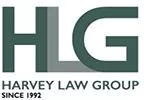Contrary to popular belief, though many countries grant automatic citizenship to spouses of nationals, such is not the case for Canada. In other words, spouses of Canadian citizens do not automatically become Canadians themselves upon marriage. Should the spouse wish to become a Canadian citizen, they would need to meet the set requirements for citizenship, including first applying to become a permanent resident of Canada, fulfilling a residency requirement, passing the requisite citizenship test, and proving their language skills.
Nevertheless, Canada does allow a wider range of circumstances for granting citizenship by parentage and ancestry.
Section 3 of Canada's Citizenship Act outlines the rights to citizenship, including citizenship by birth, citizenship by naturalization, and citizenship by ancestry. Subsection 3(1)(b) specifically states that for individuals born outside of Canada after February 14, 1977, who have at least one biological parent who was a Canadian citizen, has the right to Canadian citizenship. Additionally, subsection 3(1)(r), also affirms that individuals born outside of Canada before April 1, 1949, to a Canadian citizen are also entitled to Canadian citizenship by ancestry. Importantly, should their parent be unfortunately deceased but was a Canadian before their death, the individual in question can likely also be granted citizenship by ancestry (subsection 3(1.1) – 3(1.4)). Furthermore, the Citizenship Act also grants the rights to citizenship for individuals legally adopted by Canadians either as a minor (subsection 5.1(1)), or as an adult (subsection 5.1(2)). Special grants of citizenship are also available for grandchildren of Canadians who previously served in the Canadian Armed Forces (subsection 3(5) and 3(5.1)).
After obtaining Canadian citizen by ancestry, the individual can subsequently sponsor their unmarried biological and adopted children under 22 years of age and a common-law partner or spouse (including same-sex couples) for Canadian permanent residency by right.
Processing times for these family sponsorship applications can vary widely depending on the individual being sponsored and their current country of residence. A permanent residency is valid for five years at a time and can be renewed provided the individual continues to meet the eligibility criteria (i.e. continued relationship with the Canadian citizen). Importantly, it is also a pathway to Canadian citizenship by naturalization.
Citizenship by naturalization can be obtained by the common-law partner or spouse of the Canadian citizen by demonstrating residency in Canada for at least 1,095 days in the past 5 years upon acquiring their permanent residency status. To successfully obtain Canadian citizenship, the individual would need to also demonstrate their Canadian tax filings, prove they meet the basic English or French language requirements of at least a Canadian Language Benchmarks (CLB) Level 4 or higher and pass a citizenship test on the history, geography, government, and laws of Canada.
As a citizen of Canada, the individual is entitled to all the rights, powers, and privileges this citizenship brings, along with all the obligations, duties, and liabilities to which they are now beholden with this new identity. As such, there are no longer any residency or language requirements for required to maintain the citizenship status. Nevertheless, it is necessary to verify the citizenship laws of the country in which the individual currently holds citizenship as not all countries accept dual or multiple citizenships. Along with citizenship comes additional tax and legal obligations to which the individual now assumes.
Overall, this citizenship by ancestry program presents itself as a unique opportunity for specific individuals wishing to gain access and opportunities in Canada. As such, Harvey Law Group and its team of trusted lawyers is well-positioned to assess the eligibility of individuals and advise the options most suitable to your circumstances and goals.
The content of this article is intended to provide a general guide to the subject matter. Specialist advice should be sought about your specific circumstances.

